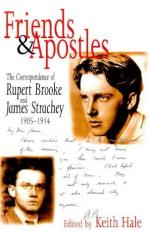|
This section contains 3,128 words (approx. 11 pages at 300 words per page) |

|
SOURCE: "Rupert Brooke," in Neglected Powers: Essays on Nineteenth and Twentieth Century Literature, Barnes & Noble, 1971, pp. 293-308.
In the following essay, Knight discusses the defining characteristics of Brooke's verse.
Rupert Brooke belongs, not to a generation, and certainly not to posterity, but to a date: in so far as his name survives, it does so in inevitable connection with 1914. Although it was his generation—the generation of Pound and Eliot, of Joyce and Lawrence, of Epstein and Picasso and Stravinsky—that made the modern world of art, Brooke has no place among them, and consequently no living contact with the present moment. He is a poet of his time, but his time was those few first months of the First World War, when Englishmen still believed that it was sweet and proper to die for one's country, and when Brooke's war sonnets could be read without bitterness or...
|
This section contains 3,128 words (approx. 11 pages at 300 words per page) |

|


